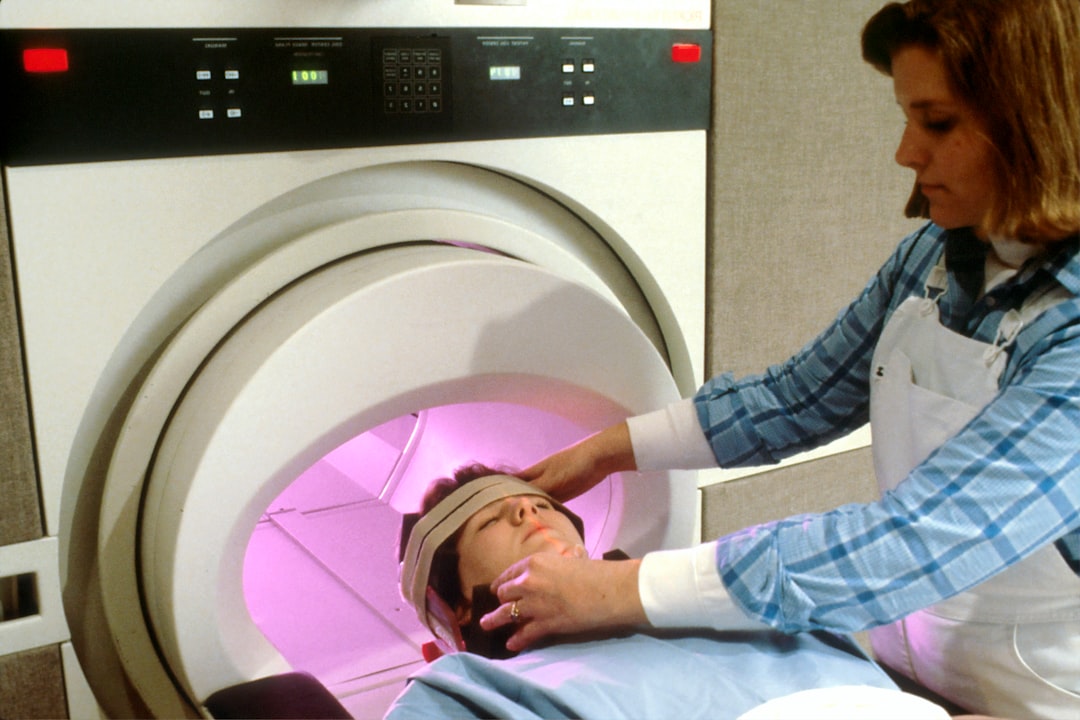Thinking about a career in medicine after finishing 12th grade? Maybe you’re curious about those cool MRI scans and how they help doctors see inside the human body. If that sounds interesting, becoming an MRI technician could be a great path for you! Let’s explore how you can become an MRI tech after 12th, what the job is like, and if it’s the right fit for you.
What Exactly Does an MRI Technician Do?
MRI technicians, also known as MRI technologists, are the people who operate MRI (Magnetic Resonance Imaging) machines. These machines use powerful magnets and radio waves to create detailed pictures of the inside of your body. These pictures help doctors diagnose illnesses and injuries.
Here’s a glimpse into their daily tasks:
- Preparing Patients: Explaining the MRI procedure to patients, answering their questions, and ensuring they are comfortable.
- Operating the MRI Machine: Positioning patients correctly, adjusting the machine settings, and monitoring the scan.
- Ensuring Safety: Following strict safety protocols to protect patients and themselves from the magnetic field.
- Reviewing Images: Checking the images for clarity and accuracy, and sending them to radiologists (doctors who specialize in reading medical images).
- Maintaining Equipment: Keeping the MRI machine clean and in good working order.
MRI Technician Course After 12th: Your Options
So, how do you actually become an MRI technician after finishing 12th grade? There are a few different pathways you can take:
Diploma Courses
These are shorter programs, typically lasting 1-2 years. They provide a good foundation in MRI technology and can get you into the field relatively quickly. However, keep in mind that some employers may prefer candidates with higher qualifications.
Bachelor’s Degree Programs
A bachelor’s degree in Radiologic Technology or a related field is a more comprehensive option, usually taking 4 years to complete. These programs offer a broader understanding of medical imaging and often include clinical experience. A bachelor’s degree can open up more career opportunities and potentially lead to higher salaries.
Associate’s Degree Programs
Associate’s degrees are two-year programs that provide a middle ground between diploma and bachelor’s programs. They offer a balance of theoretical knowledge and practical skills.
What Subjects Should I Study in 11th and 12th?
If you’re serious about becoming an MRI technician, focusing on science subjects in your 11th and 12th grades is a smart move. Here’s what’s generally recommended:
- Physics: Understanding the principles of magnetism and radiation is crucial for operating MRI machines safely and effectively.
- Chemistry: Knowing about chemical processes in the body helps you understand how contrast agents (special dyes used in some MRI scans) work.
- Biology: A good understanding of human anatomy and physiology is essential for positioning patients correctly and interpreting MRI images.
- Mathematics: Math skills are important for understanding the technical aspects of MRI technology.
Skills You’ll Need to Succeed
Besides the technical knowledge, certain skills will help you thrive as an MRI technician:
- Attention to Detail: Accuracy is vital in MRI scanning to produce clear and reliable images.
- Communication Skills: You need to be able to explain procedures clearly and calmly to patients who may be anxious or nervous.
- Technical Aptitude: You’ll be working with complex equipment, so being comfortable with technology is essential.
- Problem-Solving Skills: You may encounter technical issues or unusual patient situations that require quick thinking and problem-solving.
- Empathy and Compassion: Many patients are scared or uncomfortable during MRI scans, so being able to offer support and reassurance is important.
Job Outlook and Salary
The job outlook for MRI technicians is generally positive. As the population ages and medical technology advances, the demand for medical imaging services is expected to grow. This means there should be good opportunities for qualified MRI technicians.
Salaries for MRI technicians can vary depending on location, experience, and education level. However, it’s generally a well-compensated profession.
Benefits of Becoming an MRI Technician
- Meaningful Work: You’ll be playing a vital role in helping doctors diagnose and treat illnesses.
- Good Job Security: The demand for MRI technicians is expected to remain strong.
- Competitive Salary: MRI technicians earn a good living.
- Opportunity for Advancement: You can specialize in different types of MRI scans or move into supervisory roles.
Challenges of Becoming an MRI Technician
- Exposure to Radiation: Although MRI uses magnetic fields and radio waves, minimizing exposure to radiation during X-ray related procedures is important.
- Dealing with Anxious Patients: Some patients are claustrophobic or afraid of medical procedures.
- Standing for Long Periods: MRI scans can take a while, so you may need to stand for extended periods.
- On-call Hours: Some MRI technicians may need to work evenings, weekends, or on-call shifts.
Frequently Asked Questions
Is it hard to become an MRI technician?
It requires dedication and hard work. You’ll need to study science subjects, complete a training program, and pass a certification exam. But if you’re passionate about the field and willing to put in the effort, it’s definitely achievable.
What is the difference between an MRI tech and a radiologist?
An MRI technician operates the MRI machine and takes the images. A radiologist is a doctor who specializes in interpreting those images to diagnose medical conditions.
Do I need to be certified to work as an MRI technician?
While specific requirements can vary by state and employer, certification is highly recommended and often required. The American Registry of Radiologic Technologists (ARRT) is a common certifying body.
Can I specialize as an MRI technician?
Yes, you can specialize in areas like cardiac MRI, musculoskeletal MRI, or neuro MRI. This often involves additional training and certification.
Becoming an MRI technician after 12th grade is a rewarding career path for those interested in medical imaging and patient care. With the right education, skills, and dedication, you can play a vital role in helping doctors diagnose and treat illnesses. So, if you’re fascinated by the human body and technology, consider exploring this exciting profession!

